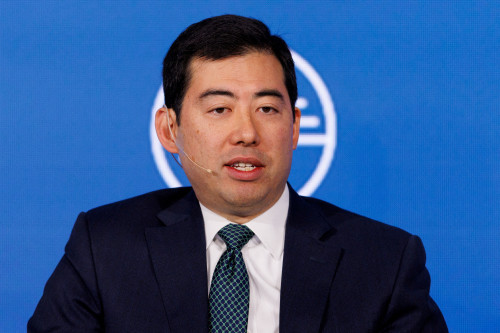By Ross Kerber
(Reuters) – New policies from the top U.S. securities regulator hand corporate boards more power over investors in ways that could curtail investor-initiated reform efforts on everything from climate policy to director contests, experts say.
Since last month when U.S. President Donald Trump named Mark Uyeda acting chair of the Securities and Exchange Commission, the agency has made it easier for boards to block shareholder resolutions, put stricter filing requirements on passive funds, and limit investors’ communication abilities.
The changes give directors more scope to nix efforts to have companies limit emissions or report workforce diversity details, while traditional activists running their own director slates could also find it harder to challenge boards, attorneys say.
“It’s a relatively dramatic reallocation of power away from large shareholders back to corporate management, not just to make corporate policy but to protect themselves against activists,” said Tulane University business law professor Ann Lipton.
Uyeda and other Republican officials – including Paul Atkins, Trump’s pick to run the SEC – have made clear their skepticism of environmental, social and governance (ESG) investment considerations. “Shareholder meetings were not intended under state corporate laws to be political battlegrounds or debating societies,” Uyeda said in a 2023 speech.
An SEC spokesperson declined to comment when contacted by Reuters. Atkins did not respond to questions sent via his current firm.
FEWER BALLOT ITEMS
The SEC’s changes are in line with other Trump administration efforts such as dismantling diversity programs and withdrawing from the Paris Climate Agreement.
ESG resolutions drew significant support in 2021 and 2022, but less so since. In a Feb. 11 legal bulletin the SEC made it easier for companies to skip votes on the resolutions such as by claiming the proposals “micromanage” their businesses.
That change could make it harder for ESG-minded activists even to start talks with corporate executives.
“If it’s harder to get your resolution through at the SEC, it will be harder to do that kind of work,” said Rick Alexander, CEO of the Shareholder Commons, which tracks and writes resolutions.
On Feb. 11, the SEC also revised “beneficial ownership reporting” interpretations to broaden the requirements on firms like asset managers BlackRock and Vanguard, which often rely on the SEC’s Schedule 13G form to report major holdings.
Going forward, the agency tightened when managers can use the form rather than the more complex Schedule 13D, which would increase their costs. A new SEC test is if a company “exerts pressure on management” such as tying director votes to whether a company has a staggered board or poison pill takeover defenses.
Proxy voting policies of both BlackRock and Vanguard suggest those circumstances could lead to critical votes.
BlackRock and Vanguard declined to comment.
Caroline Crenshaw, currently the lone Democratic member of the SEC, via e-mail said the change could chill the big funds’ outreach.
“The interpretation muddies the waters for institutional investors, with the unstated goal of dissuading them from engaging with corporations. At bottom, this policy is bad for capital formation,” Crenshaw said.
COMMUNICATION BREAKDOWN
A third change involves new guidance on when investors can use the SEC’s electronic records system to distribute so-called “exempt solicitations,” or communications with other shareholders.
Once meant as a tool to reveal closed-door discussions among bigger institutional holders, smaller investors started filing their own exempt solicitations as a cheap way to make their arguments on issues like whether to oppose a certain director or support a shareholder resolution.
In a January 27 update the SEC narrowed their permissible use. The documents are “not intended to be the means through which a person disseminates written soliciting material to security holders,” the SEC said, but rather only to notify the public of written materials sent to security holders through other means.
For Tom Quaadman, Senior Vice President for the U.S. Chamber of Commerce, a top business lobbying group, the SEC’s changes were welcome.
“You’re seeing a rebalancing of SEC policies and rules that are designed to take out special interest activism and bring things back to a focus on investor return,” he said.
(Reporting by Ross Kerber in Boston. Editing by Simon Jessop in London.)










